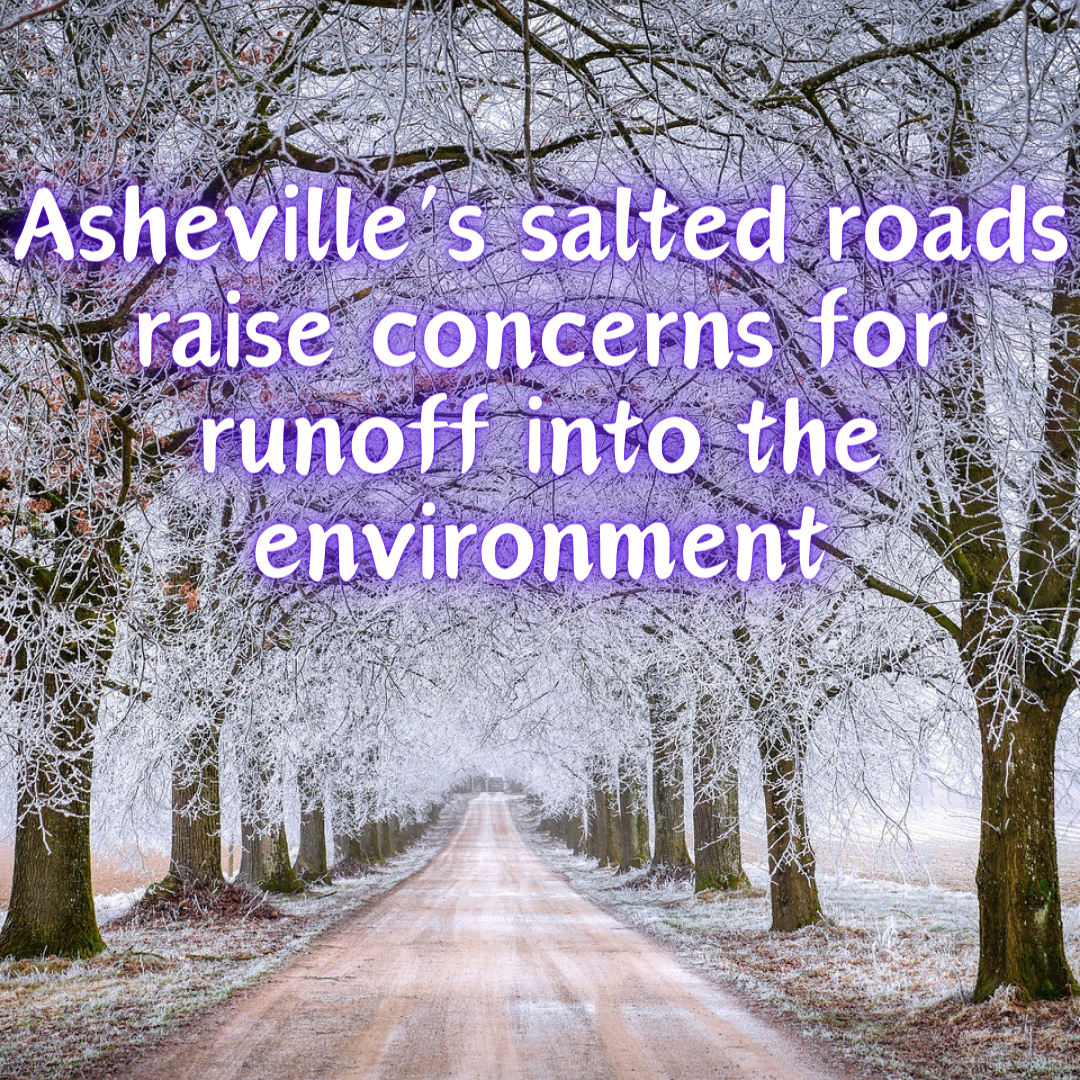UNC Asheville faculty and local environmental activists say they remain alarmed for the health of the French Broad River after recent rain washed away road salt.
“Runoff runs off hard surfaces, goes into our storm drains, and then whatever pollutants or water that goes into storm drains gets piped into our waterways or streams,” said Ameri-Corp Watershed Coordinator Sandra Villasenor.
Villasenor said impervious surfaces such as pavement, rooftops and industrialized areas contribute to runoff because the now polluted water can’t flow naturally into the ground and filter itself. Instead it is directed from drains into storm pipes then flows directly into rivers.
“When we sampled the streams around Asheville shortly after a snowstorm there were definitely spikes of sodium chloride,” said UNCA Professor of Environmental Studies Jeffrey Wilcox.
Wilcox said when roads are salted this leads to future issues, particularly in dissolving salt absorbing into the water. Salt’s main use on roads and public spaces is to lower the freezing point of water.
“So what it does is salting brings down the freezing temperature. Water freezes at 32 degrees. But the more salt you add you bring it down to 30, 29, 28, 27 maybe 25 degrees,” Wilcox said.
Trader Joe’s Manager Kelly Sullivan said another reason for salting places like sidewalks and parking lots is due to safety issues.
“We lay out salt so we can receive trucks, our customers can walk safely on the sidewalk and stuff like that,” Sullivan said.
Sullivan said markets around Asheville salt heavy foot traffic areas not only for accessibility but for safety reasons as well.
Villasenor said there’s another option that could replace salt.
“Right now they’re trying to look for other alternatives. I know magnesium chloride is one but I think they probably don’t use it because it costs more,” Villasenor said.
Villasenor said alternatives to salt are scarce as well as pricey. Salt is also corrosive and messy in higher traffic areas, according to the supermarket managers.
“Salt makes a mess. You can see it all over the floors. It really puts a hurting on the sales floor because it’s completely covered in white residue,” Sullivan Said. “So it actually is pretty destructive on the inside. And almost starts eating away if you leave it untreated for too long,”
Wilcox said a pretreatment for icy roads exists, a mix of water and salt dispersed onto the roads helps prevent freezing before the actual freezing ever begins and it usually requires much less salt.
“You’re adding just a little bit of salt that way. So that’s why I think pretreatment around here is the way to go,” Wilcox said.
Wilcox said salting roads and public spaces may be up for debate but other options aren’t readily available enough, especially when frozen roads pose a threat to traffic safety.
“It’s not great to add so much salt to the environment but it’s also not great to have cars crashing into each other, and it does wash out mostly,” Wilcox said.


![Brooke Pedersen [second from the right] and Luis Reyes [right] hold banners during the Wrap The Woods event.](https://thebluebanner.net/wp-content/uploads/2025/09/ELIZABETH_PRITCHITT_IMG_3470-1200x804.jpg)




















